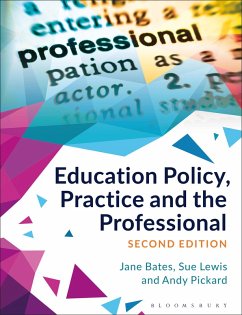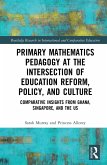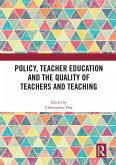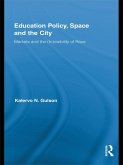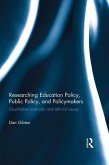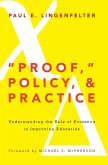In this introduction to educational policy, practice and professionalism, the authors focus first on providing an historical overview of English policy from the state's first interventions in education through to Thatcherism and the election of the Blair government. Chapters then explore the key contemporary policies of recent times and offer a critique on how they have worked in practice, with reference the hysteria that often surrounds education policy. An important theme is media representation of educational matters and the effects this has on the teaching profession. Commentaries and case studies are presented throughout providing an accessible link to what it was really like to learn, teach and live at the time the policy was in place.
This new edition now includes:
- an account of the measures taken by the Coalition Government of 2010-15, examining the Coalition's continuities with the previous administration whilst also exploring departures from previous thinking and practices;
- updated references and case studies throughout to represent new research and legislation since the first edition;
- an extended discussion of globalization and global 'policy borrowing';
- further coverage of social justice theory, including a perspective on identity theory and the role of education in the development of identity and the marginalisation of individuals and groups;
- a new historical chapter covering the period 1945 to 1997;
- a summary of the development of the curriculum and a critique of the 2014 National curriculum, as pioneered by Michael Gove; and
- a new conclusion setting out the trajectory of current policies and how this may affect educational practitioners.
This is essential reading for all undergraduate students studying education policy and practice.
This new edition now includes:
- an account of the measures taken by the Coalition Government of 2010-15, examining the Coalition's continuities with the previous administration whilst also exploring departures from previous thinking and practices;
- updated references and case studies throughout to represent new research and legislation since the first edition;
- an extended discussion of globalization and global 'policy borrowing';
- further coverage of social justice theory, including a perspective on identity theory and the role of education in the development of identity and the marginalisation of individuals and groups;
- a new historical chapter covering the period 1945 to 1997;
- a summary of the development of the curriculum and a critique of the 2014 National curriculum, as pioneered by Michael Gove; and
- a new conclusion setting out the trajectory of current policies and how this may affect educational practitioners.
This is essential reading for all undergraduate students studying education policy and practice.

